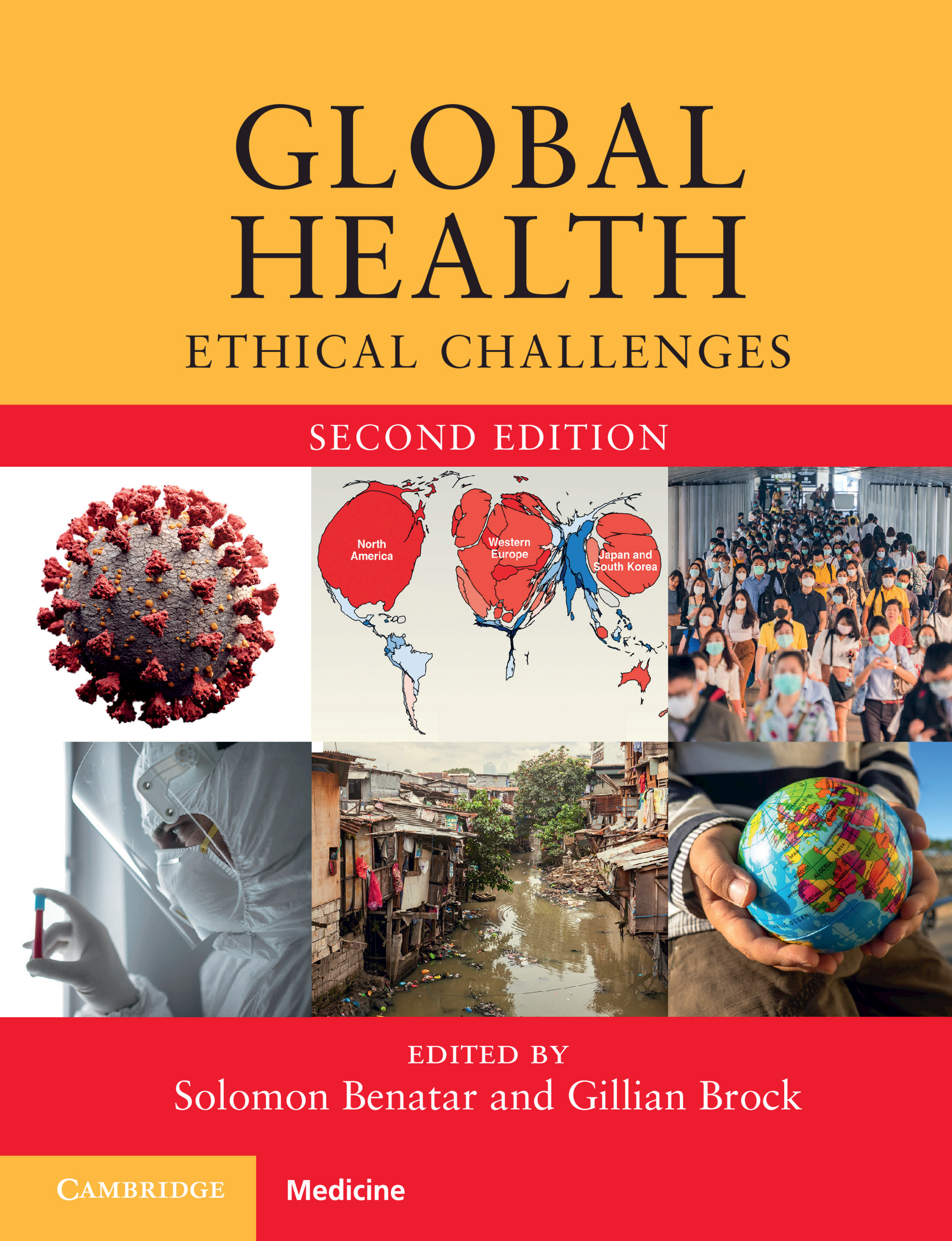Book contents
- Global Health
- Global Health
- Copyright page
- Contents
- Contributors
- Introduction
- Section 1 Global Health: Definitions and Descriptions
- Section 2 Global Health Ethics, Responsibilities, and Justice: Some Central Issues
- Section 3 Analyzing Some Reasons for Poor Health and Responsibilities to Address Them
- Chapter 11 Trade and Health
- Chapter 12 Debt, Structural Adjustment, and Health
- Chapter 13 The International Arms Trade and Global Health
- Chapter 14 Allocating Resources in Humanitarian Medicine
- Chapter 15 Development Assistance for Health
- Chapter 16 Geopolitics, Disease, and Inequalities in Emerging Economies
- Chapter 17 Neoliberalism, Power Relations, Ethics, and Global Health
- Chapter 18 Morbid Symptoms, Organic Crises, and Enclosures of the Commons
- Chapter 19 Challenging the Global Extractive Order
- Section 4 Environmental/Ecological Considerations and Planetary Health
- Section 5 The Importance of Including Cross-Cultural Perspectives and the Need for Dialogue
- Section 6 Shaping the Future
- Index
- References
Chapter 16 - Geopolitics, Disease, and Inequalities in Emerging Economies
from Section 3 - Analyzing Some Reasons for Poor Health and Responsibilities to Address Them
Published online by Cambridge University Press: 04 February 2021
- Global Health
- Global Health
- Copyright page
- Contents
- Contributors
- Introduction
- Section 1 Global Health: Definitions and Descriptions
- Section 2 Global Health Ethics, Responsibilities, and Justice: Some Central Issues
- Section 3 Analyzing Some Reasons for Poor Health and Responsibilities to Address Them
- Chapter 11 Trade and Health
- Chapter 12 Debt, Structural Adjustment, and Health
- Chapter 13 The International Arms Trade and Global Health
- Chapter 14 Allocating Resources in Humanitarian Medicine
- Chapter 15 Development Assistance for Health
- Chapter 16 Geopolitics, Disease, and Inequalities in Emerging Economies
- Chapter 17 Neoliberalism, Power Relations, Ethics, and Global Health
- Chapter 18 Morbid Symptoms, Organic Crises, and Enclosures of the Commons
- Chapter 19 Challenging the Global Extractive Order
- Section 4 Environmental/Ecological Considerations and Planetary Health
- Section 5 The Importance of Including Cross-Cultural Perspectives and the Need for Dialogue
- Section 6 Shaping the Future
- Index
- References
Summary
In recent years, an international consensus has emerged claiming that developing nations must now, more than ever, merge the fields of foreign policy and health. To that end, in 2006, the Ministers of Foreign Affairs from Brazil, France, Indonesia, Norway, Senegal, South Africa, and Thailand established a ministerial accord agreement in Oslo, Norway, emphasizing that healthcare become an integral component of foreign policy (Amorim et al., 2006). Whereas improved diplomatic relations in health, also commonly referred to as global health diplomacy, has led to increased communication between nations, technical assistance, and disease preparedness (Long, 2011), unfortunately, it also has led to an increase in domestic healthcare inequalities and policy shortcomings. As I explain in this chapter, this shortcoming mainly has to do with how global health diplomacy has shifted politicians’ focus away from prioritizing domestic healthcare needs.
- Type
- Chapter
- Information
- Global HealthEthical Challenges, pp. 221 - 229Publisher: Cambridge University PressPrint publication year: 2021



